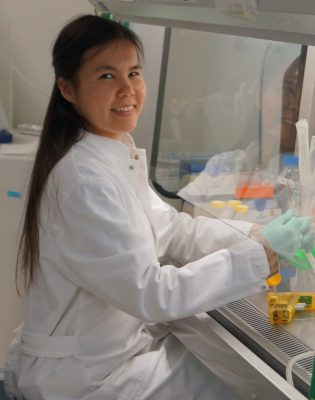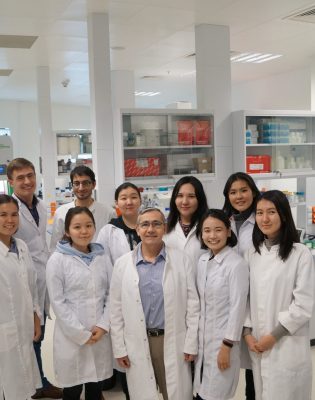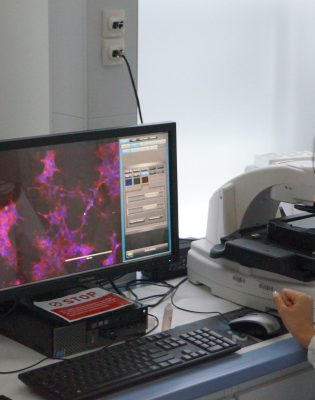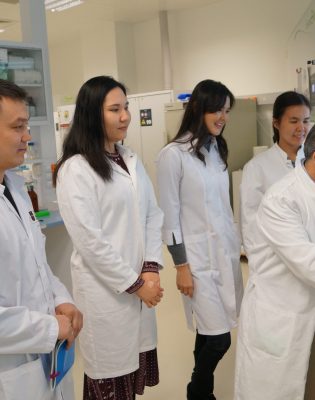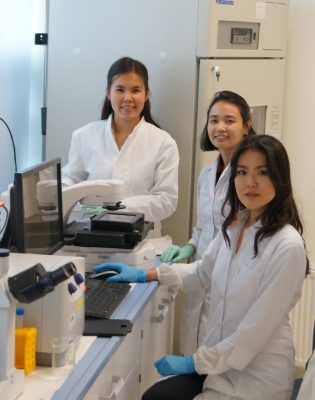NU PhD student’s research may help develop a new approach to cure cancer and diabetes
Assem Ashimova, a 4th year Ph.D. student at Nazarbayev University School of Science and Humanities, and co-authors recently published an article entitled “Cell Encapsulation Within Alginate Microcapsules: Immunological Challenges and Outlook” in the Journal “Frontiers in Bioengineering and Biotechnology”.
The article describes a bioengineering technology called “cell encapsulation”, which is expected to uncover new therapies for diseases such as cancer and diabetes and is at the core of Assem Ashimova’s Ph.D. research. Specifically, Ms. Ashimova’s Ph.D. focuses on the application of cell encapsulation in cancer therapy and she uses various molecular techniques in cell lines and animal models to accomplish her aims.
Although the concept of cell encapsulation was first proposed almost nine decades ago, the technology has yet to deliver its promise. In particular, the few clinical trials utilizing cell encapsulation have not led to any licensed therapies. In their paper, Ashimova and colleagues discuss the challenges in the field and the difficulties encountered when trying to prevent the immune responses generated by microcapsules and their components.
Most importantly, the authors highlight the recent discoveries in the field of cell encapsulation that they hope will allow the development of new approaches for the treatment of chronic diseases, including those that are prevalent in Kazakhstan.
Assem’s research is supervised by Dr. Gonzalo Hortelano, Professor at the NU School of Sciences and Humanities and the Principal Investigator of the Molecular Therapeutics laboratory.
- Nazarbayev University School of Science and Humanities offers undergraduate students world-class education in Biology, Chemistry, Mathematics, Physics, Anthropology, Economics, History, Political Science & International Relations, Sociology, and Languages & Literature; Masters Degrees in Biology, Chemistry, Economics, Eurasian Studies, Math, Physics, and Political Science & International Relations and for doctoral students; and for doctoral students offers Ph.D.’s in the Sciences as well as Eurasian Studies. More information about programs is here.



